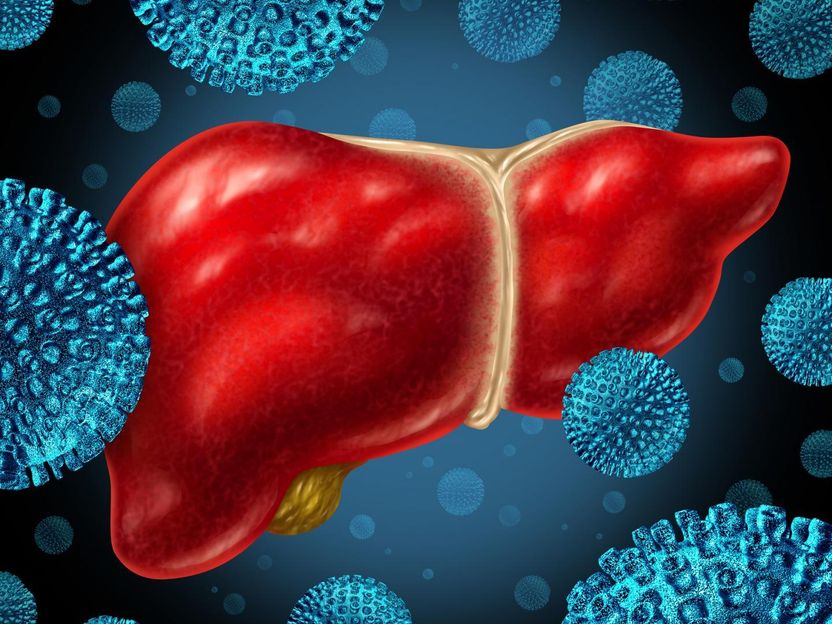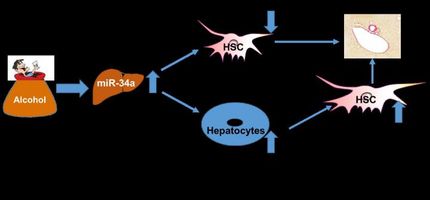Paracetamol study could open door for way to treat liver damage
Scientists have shed new light on how the common painkiller paracetamol causes liver damage.
Their findings may offer valuable insights into poisoning caused by an excess dose, which can be difficult to treat and may prove fatal.
The discovery could inform research into therapies to counteract harm caused by the drug, which is the leading cause of acute liver failure in the Western world.
Scientists at The University of Edinburgh studied the impact of paracetamol on liver cells in human and mouse tissue.
Tests showed that even relatively low doses of paracetamol can damage the liver by harming vital structural connections between adjacent cells in the organ.
When these cell wall connections – known as tight junctions – are disrupted, the liver tissue structure is damaged, cells are unable to function properly and they may die.
This type of cell damage is known to occur in liver conditions including hepatitis, cirrhosis, and cancer, but until now it was not linked to paracetamol toxicity.
Researchers aim now to develop a reliable method of using human liver cells as an alternative to animal testing. They then will seek to examine how varying paracetamol doses and timescales affect toxicity in the liver, and identify potential targets for new drugs.
The study, involving researchers from the universities of Edinburgh and Oslo, and the Scottish National Blood Transfusion Service, was supported in part by the Biotechnology and Biological Sciences Research Council and the Chief Scientist Office.
Dr Leonard Nelson, of The University of Edinburgh’s Hepatology Laboratory and Institute for Bioengineering, who co-led the study, said: “Paracetamol is the world’s preferred pain remedy – it is cheap, safe and effective. However, drug-induced liver damage remains a significant problem. Our findings reinforce the need for vigilance in paracetamol use, and could help discover how harm caused by its adverse use might be prevented.”
Co-author Pierre Bagnaninchi, of the university’s MRC Centre for Regenerative Medicine, said: “Although liver damage cause by paracetamol toxicity has been the subject of intense study for 40 years, developments in biosensor technology are enabling a fuller picture of the biological mechanisms involved, which is a huge step in helping develop ways to manage the risks of an overdose.”
Original publication
Other news from the department science

Get the life science industry in your inbox
By submitting this form you agree that LUMITOS AG will send you the newsletter(s) selected above by email. Your data will not be passed on to third parties. Your data will be stored and processed in accordance with our data protection regulations. LUMITOS may contact you by email for the purpose of advertising or market and opinion surveys. You can revoke your consent at any time without giving reasons to LUMITOS AG, Ernst-Augustin-Str. 2, 12489 Berlin, Germany or by e-mail at revoke@lumitos.com with effect for the future. In addition, each email contains a link to unsubscribe from the corresponding newsletter.
Most read news
More news from our other portals
Last viewed contents
People main cause behind spread of dangerous viroids in plants
Control_of_respiration
Typhus
Esophageal_motility_disorder
Evotec and Indivumed announce second joint drug discovery programme
Espicom predicts that leading global generic drug markets will grow to US$221 billion by 2016
Two international experts (Laszlo Hegedüs MD and Geoffrey Block MD) join Theraclion's Board of Directors
Thermo Fisher Scientific and George Mason University Partner in Protein Biomarker Research Project - Collaboration Aims to Accelerate Verification and Validation of Protein Biomarkers for Earlier Disease Diagnosis and Therapeutic Efficacy
First Patient Dosed in Phase II Clinical Trial for BioInvent's Cardiovascular Drug, BI-204 - Trial start triggers US$ 15 million milestone from Genentech























































